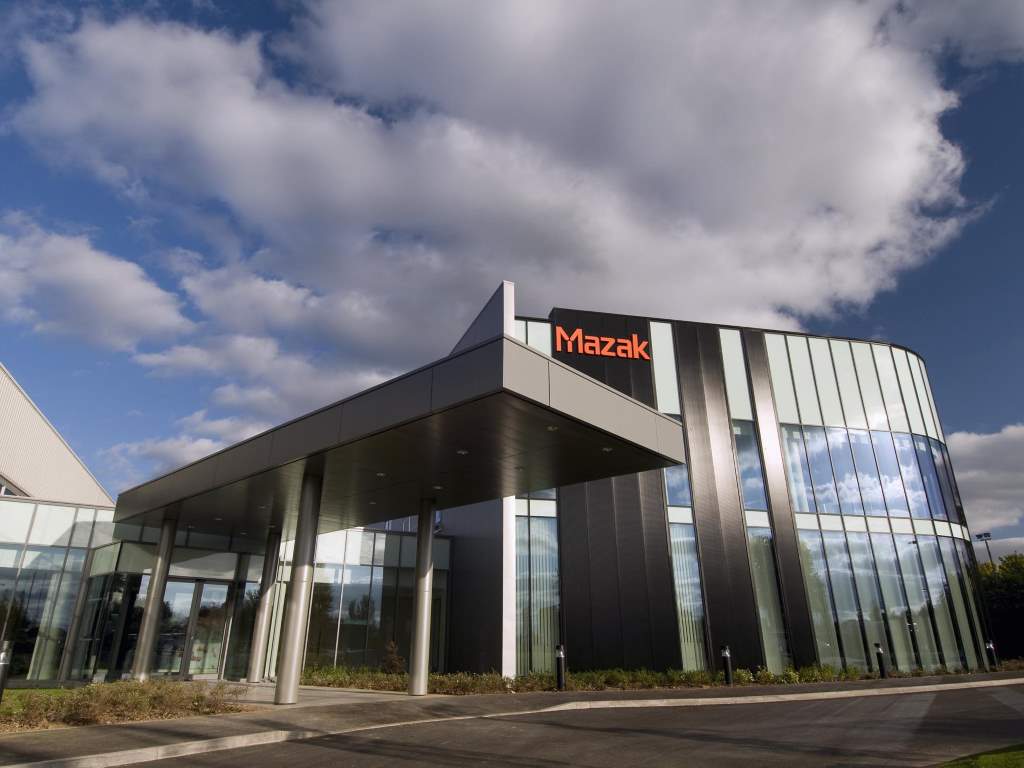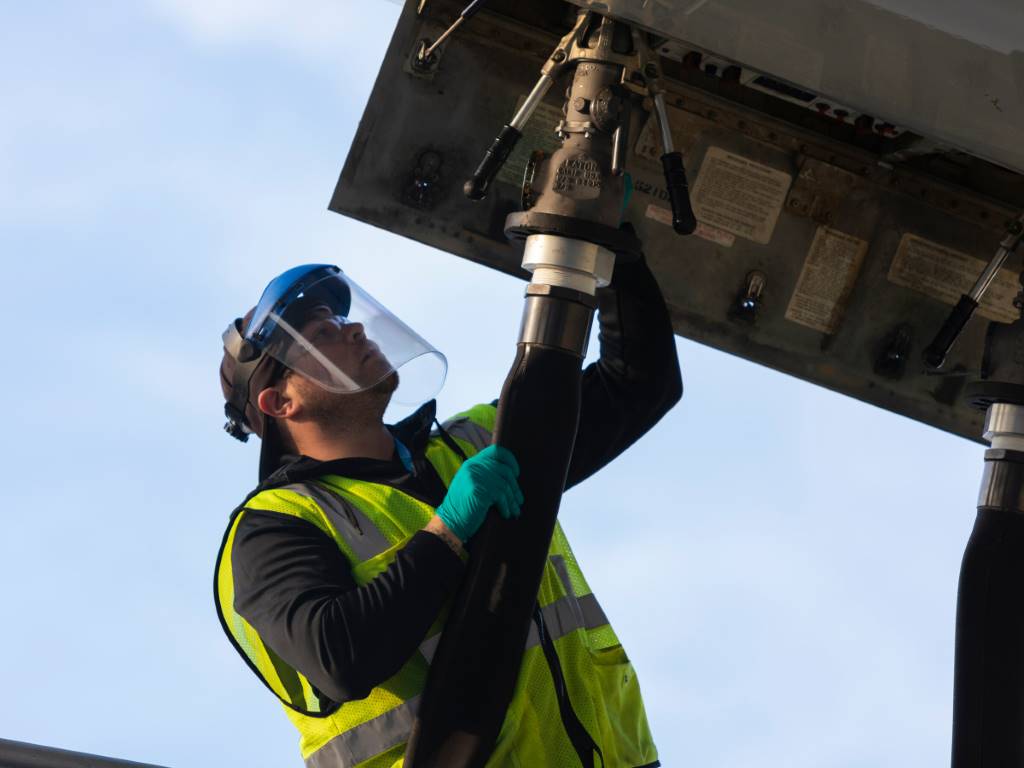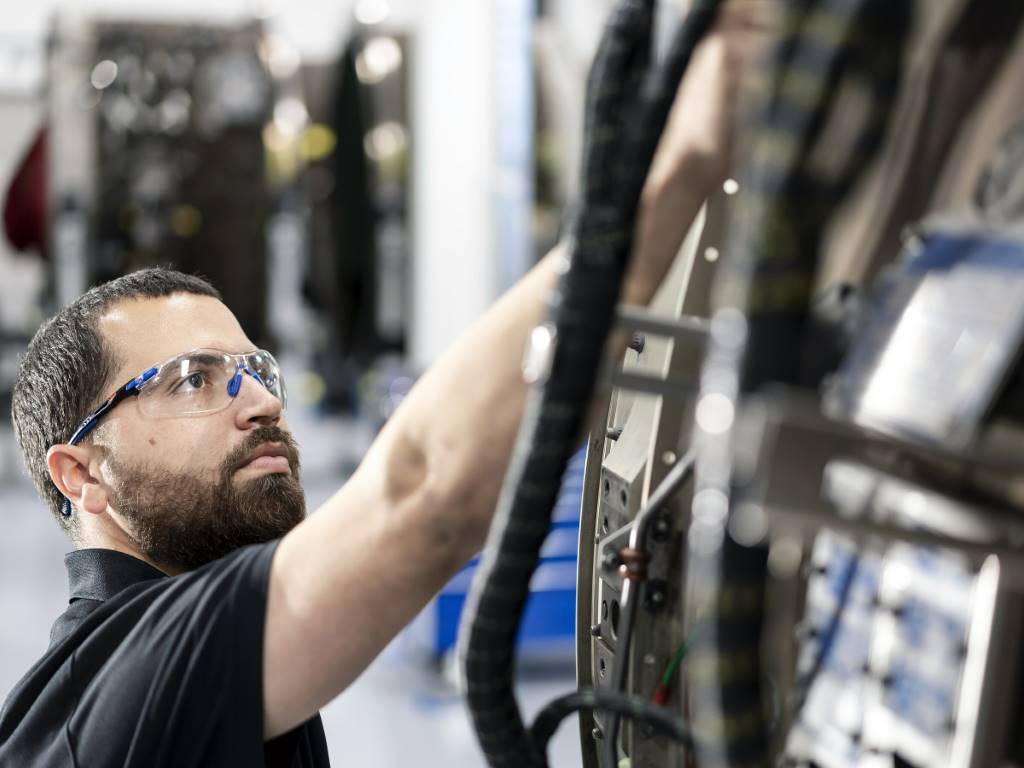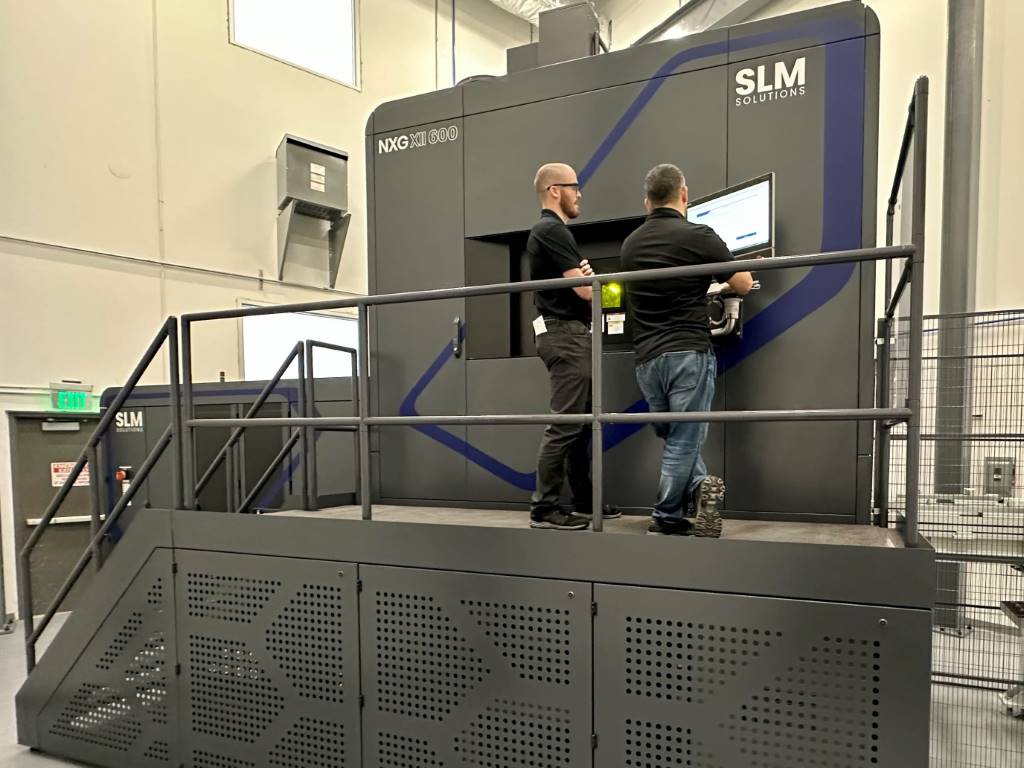Automate and innovate

While the pandemic has presented the most challenging time for many manufacturers, tier one aerospace supplier, Pennine Tools Aerospace has managed to navigate the uncertainty unscathed thanks to its early adoption of machine tool automation systems.
Located in Barnoldswick, Pennine Tools Aerospace has a proud and diverse manufacturing history. Over the past 48 years, the family-run business has serviced a number of industrial subsectors, including general subcontracting, medical and furnishings, before firmly establishing itself as one of the region’s leading tier one aerospace suppliers throughout the past decade.
“We’ve grown from a single unit with two employees to a multi-area facility with over 50 fulltime employees,” begins Pennine Tools’ general manager, Richard Craddock. “However, it’s really over the past 10 years that things have really started to take off.”
Working directly for a series of multinational OEMs throughout both the civil and defence aerospace sectors, including Airbus, BAE Systems, GE Aviation, GKN and the Ministry of Defence (MoD), Pennine Tools has a suite of over 800 contracted parts that can be made to order.
“We specialise in ‘aircraft on ground’ and ‘urgent operation requirement’ work, which means we have work to extremely demanding timescales,” continues Craddock. “Ultimately, if a plane lands and there’s a problem, it will be grounded until we can manufacture a new component. As such, we have to have utmost faith in our production equipment to ensure we can produce the required component right first time.”
Pennine Tools’ ability to work to such tight timescales stems in part from its long-term partnership with machine tool manufacturer Yamazaki Mazak. Within excess of 20 machines installed at its Lancashire manufacturing facility, including models from its Variaxis, VCN, VTC, Nexus and Quick Turn series, Mazak has been a mainstay for Pennine Tools for over the past 26 years.
“When I joined the company, we were already a number of years into our journey with Mazak,” states Craddock. “One of the reasons the partnership has been so successful is the uniformity of the Mazatrol CNC across our entire machine tool portfolio.”
“We have consciously adopted a multi-process function within our workforce, whereby any engineer should be able to program and operate any machine tool within the production facility. The challenges of sourcing and retaining talent within the engineering industry are well known, so having a common control protocol certainly helps from a training and operation perspective.”
Done in one
With order books growing in line with aircraft build rates, in 2016 Pennine Tools invested in its first twin pallet automation system to accompany the purchase of a new Variaxis i-700 multi-tasking machining centre.
Combining 5-axis milling and turning in a single set-up, the Variaxis i-700 is able to offer ‘done-in-one’ processing of complex workpieces up Ø850mm. With a large machining envelope and a Ø700mm table, it is perfectly aligned to deliver high-accuracy, high-speed, multi-surface machining from a compact footprint.
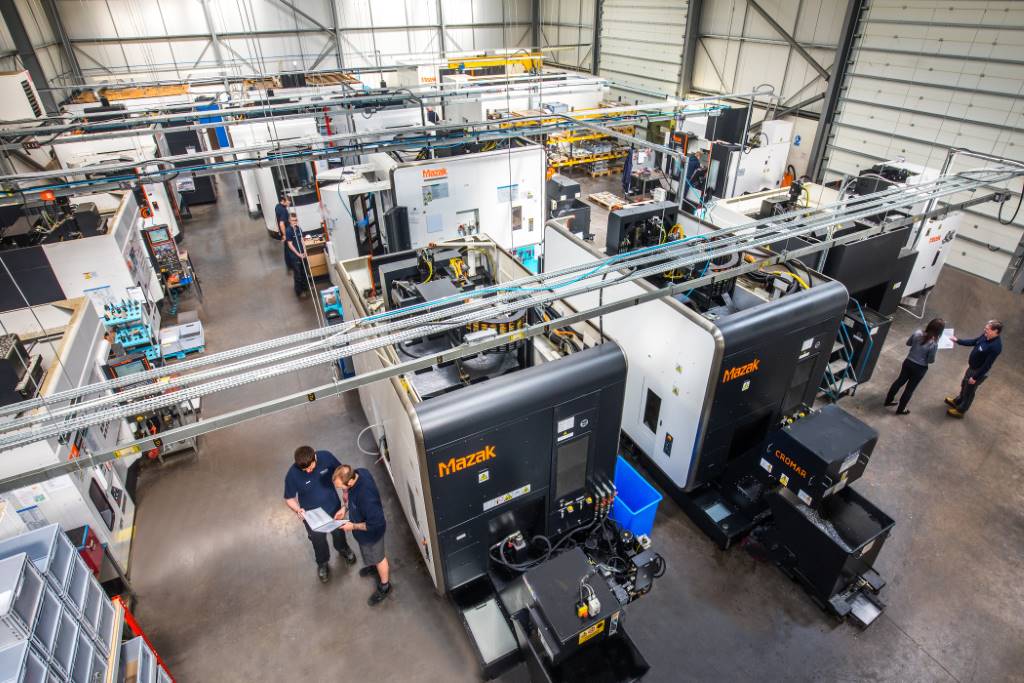
“Twin pallet loading allowed us to keep pace with demand by ultimately increasing our output from the same resource,” notes Craddock. “It proved so successful that we purchased three more Variaxis machines with twin pallet loading systems over the subsequent three years.
“The Variaxis i-700s really opened a new door for us in terms of capacity to process larger workpieces, and having the twin pallet functionality also enabled us to free up more machining time on our VTC-800/30SR vertical machining centres.”
However, much like the rest of civil aviation sector, Pennine Tools has felt the full force of the Covid-19 pandemic, which ground civil aviation work to a halt.
“After the initial lockdowns in March 2020, we didn’t know where we were going to be initially,” adds Craddock. “However, quite early on we were in contact with the MoD who asked us to ensure we could continue to provide support under any circumstances. This was a challenge in itself, let alone in the early stages of a pandemic. However, our early adoption of automation systems proved to stand us in very good stead as advice on social distancing continued to change throughout 2020 and 2021.”
Given the size of the company’s 3,200m2 machine shop, Pennine Tools was quickly able to implement a series of safe and controlled working systems to keep all employees socially distanced throughout lockdown periods.
A multi-manning operation was initiated, which resulted in one operator running two machines within a dedicated factory zone, with only a limited number of personal being given pre-approved multi-zone access. However, the versatility of the four twin pallet machines ensured production levels could keep pace with the levels demanded by the MoD, while also keeping the volume of staff on site to a minimum.
“The last two years have undoubtedly been very challenging, however the workforce has been and stuck rigidly to the systems we put in place, so we’ve been manufacturing uninterrupted throughout,” says Craddock. “Ultimately, we were very grateful to be able to assist the MoD, as that very much kept us operational.”
Working all hours
Pennine Tools’ success navigating this challenging business landscape has been self-evident, with the company investing in a further HCN-5000 machining centre in October 2021. Purchased with expansion in mind, the new unit’s 15-16-hour running times allows for out-of-hours running, further increasing the company’s machining capacity.
Looking to the future, Craddock remains pragmatic. “Civil aviation is still recovering from the shutdowns caused by the pandemic, and the industry is still not fully back up to speed yet. However, there are positive signs on the horizon – during this period, we have installed a new NDT, treatment and paint facility alongside an additional machining centre, the HCN-5000. We have a strong desire to grow further as the market recovers, and these actions have allowed us to broaden the range of services we can offer our customers.”
He concludes: “While we are all looking forward, it is nice to reflect on our past decisions to automate early. In that regard, we very much feel vindicated given how heavily we relied on it during the extended periods of enforced social distancing at our facility. Indeed, though technologies, such as anti-collision software and offline programming were implemented in response to the pandemic, they have become permanent fixtures and will be vital to our continued success as things return to normal.”


